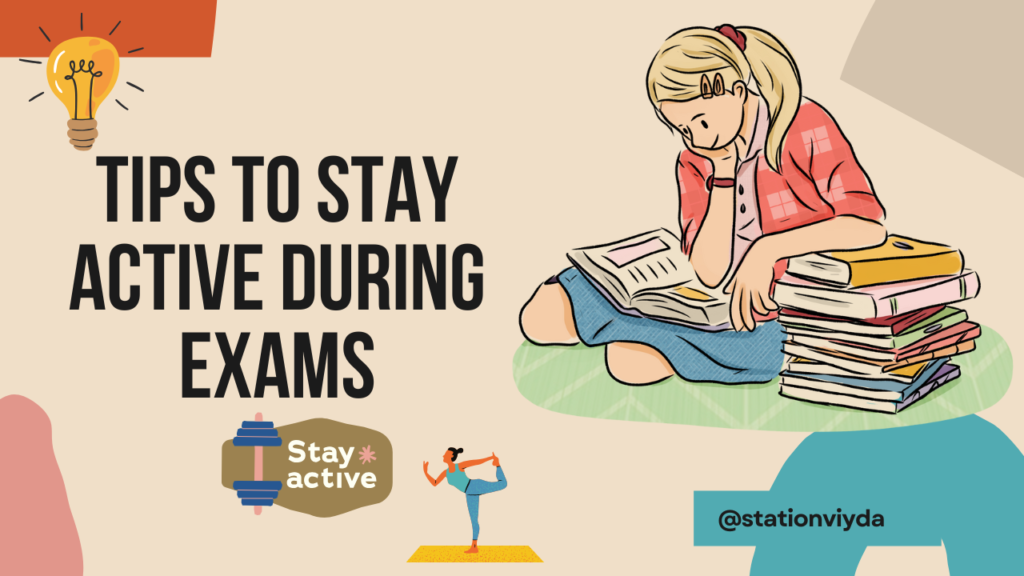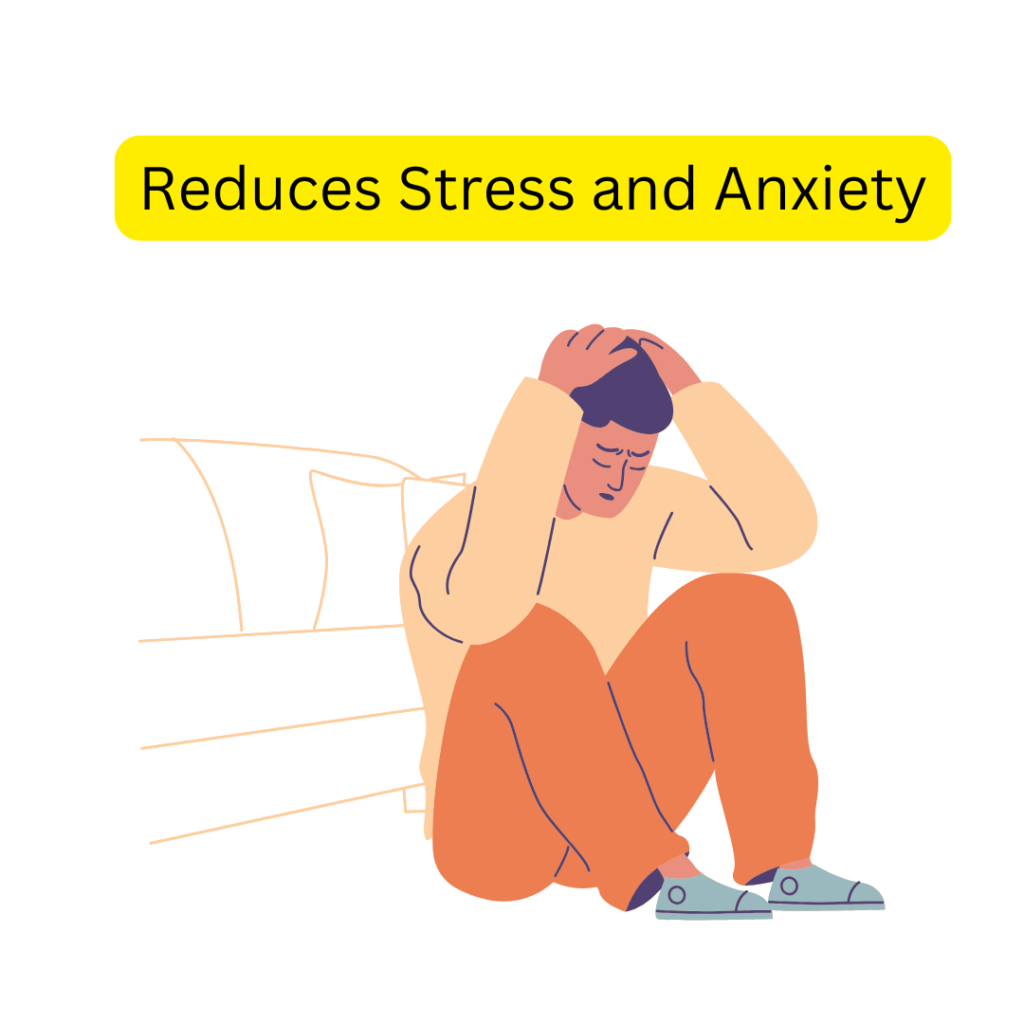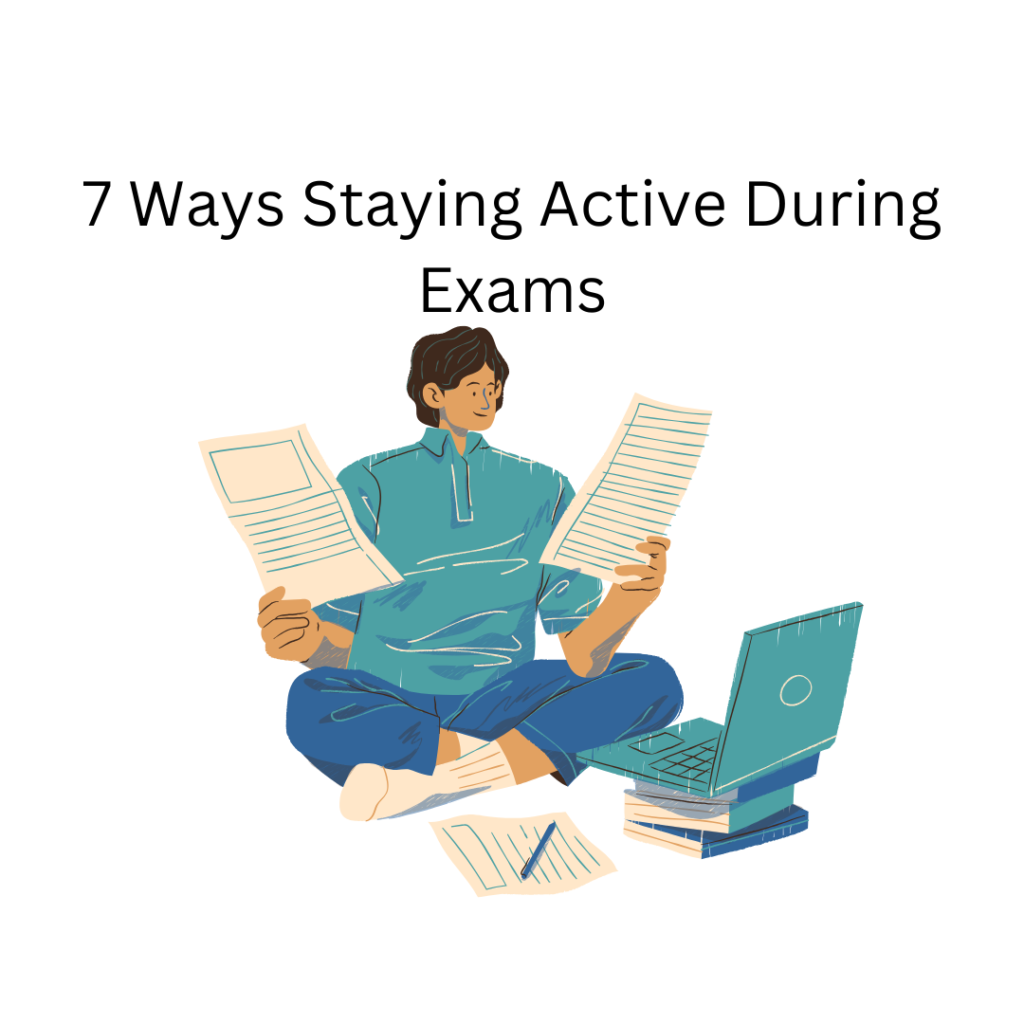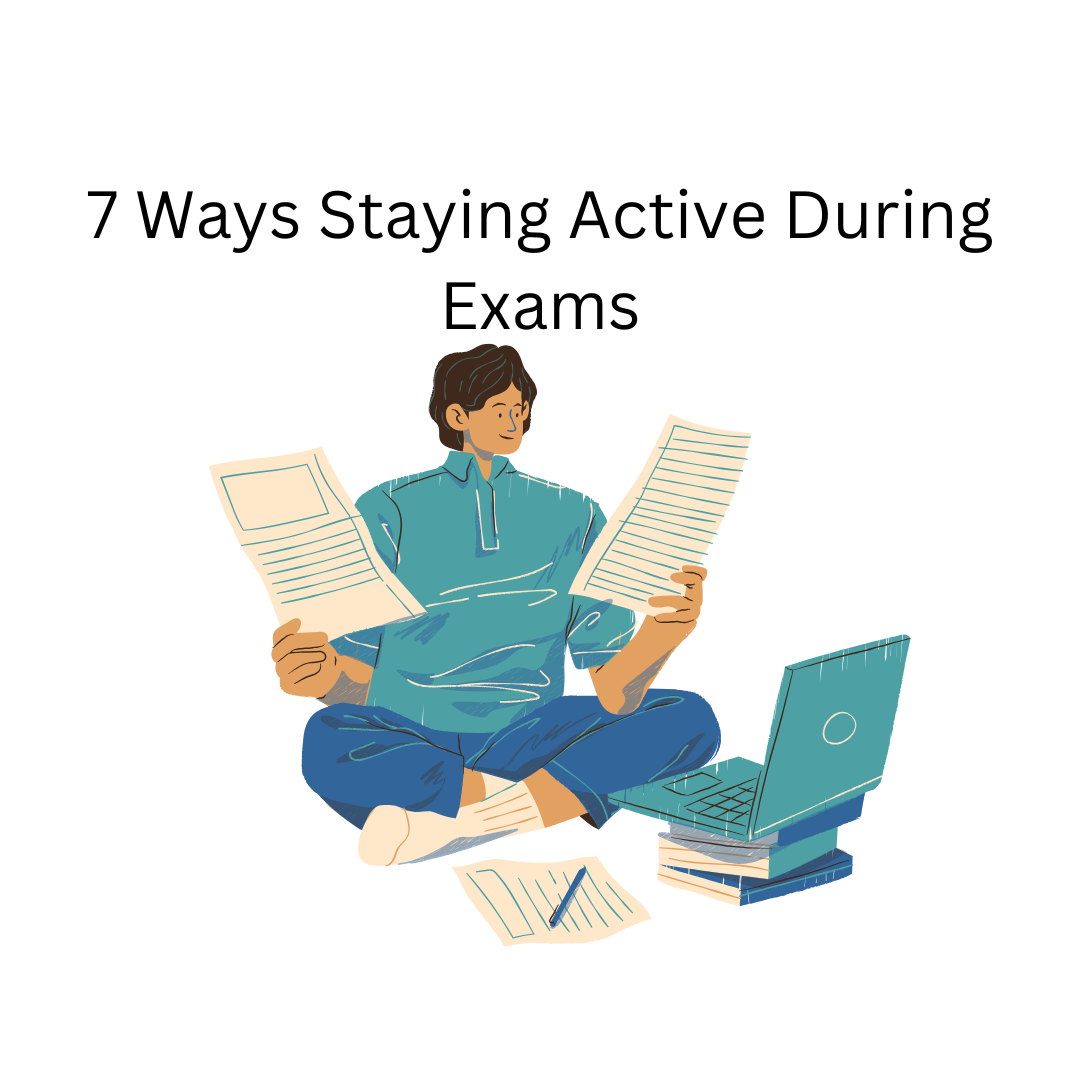7 Ways Staying Active During Exams . Discover how staying active during exams enhances productivity, reduces stress, and improves focus. Learn effective tips to balance exercise and study for peak performance.

Best study tips for exams, exercise for exam day, study tips for exam preparation, staying awake while studying, how to strengthen brain on exam day, staying active during exam, productivity tips for exams
How Staying Active During Exams Enhances Productivity and Well-Being
Exam time can be stressful, but staying active offers a natural way to enhance your focus, memory, and overall well-being. Incorporating even small amounts of physical activity into your routine can make a big difference. Here’s how:
The Benefits of Staying Active During Exams: Detailed Guide
Exam season is a challenging time, and staying active might seem secondary. However, it’s a game-changer for your productivity, focus, and mental health. Here’s a deeper dive into how staying active benefits you and practical examples of what to do and how to incorporate these activities effectively.
7 Ways Staying Active During Exams
1. Boosts Brain Power
Physical activity enhances blood circulation, delivering oxygen and nutrients to the brain. This boosts cognitive functions like memory and concentration, which are crucial during exams.
What to Do:
- Go for a brisk walk: Spend 10-15 minutes walking outdoors, especially in green spaces, to refresh your mind.
- Try aerobic exercises: Activities like jumping jacks, skipping, or a light jog can quickly boost blood flow and mental alertness.
How to Do It:
Set a timer for every 2-3 hours of study to remind yourself to take a short physical activity break. For instance, after studying for 50 minutes, take a 10-minute walking break.
2. Reduces Stress and Anxiety

What to Do:
Stress and anxiety are common during exams, but exercise releases endorphins—hormones that help you feel calm and focused.
- Practice deep breathing with light movement: Combine deep breathing exercises with gentle stretching.
- Engage in playful activities: Dancing to your favorite music or playing a quick round of a sport can lift your spirits.
How to Do It:
Start your day with 5 minutes of simple stretches or yoga poses like the Child’s Pose or Cat-Cow stretch. These can calm your nerves and set a positive tone for the day.
3. Improves Sleep Quality
A well-rested mind is sharper and better at retaining information. Physical activity helps regulate your sleep-wake cycle by reducing restlessness and promoting deeper sleep.
What to Do:
- Evening walks: A gentle walk after dinner helps you unwind and prepare for bedtime.
- Stretch before bed: Simple stretches like touching your toes or shoulder rolls relax your body.
How to Do It:
Avoid vigorous exercise right before bed as it may energize you too much. Opt for calming activities like yoga or a short walk.

4. Enhances Mood and Motivation
Prolonged study sessions can lead to mental fatigue and low energy. Exercise improves your mood by releasing dopamine and serotonin, keeping you motivated.
What to Do:
- Quick dance breaks: Put on upbeat music and dance for 5-10 minutes.
- Engage in fun workouts: Try online workout videos that include playful activities, like Zumba or aerobics.
How to Do It:
Include these activities during planned breaks to maintain your energy levels and avoid feeling overwhelmed by studying.
5. Promotes Physical Health
Sitting for long periods during exams can cause stiffness, poor posture, and fatigue. Physical activity prevents these issues, ensuring you remain energized.
What to Do:
- Desk stretches: Stretch your neck, shoulders, and back while seated.
- Core-strengthening exercises: Try planks or sit-ups to improve posture and reduce back strain.
How to Do It:
Set an alarm to remind yourself to stretch every hour. For every 30 minutes of sitting, stand up and move around for 5 minutes.
6. Breaks the Monotony
Studying for hours can make your routine monotonous. Exercise acts as a mental reset, making it easier to return to your studies with renewed focus.
What to Do:
- Short, fun workouts: Do activities like skipping rope or tossing a ball around.
- Nature walks: Spend time in a park or garden to reconnect with nature.
How to Do It:
Schedule a 20-minute outdoor break every afternoon to soak up some sunlight and enjoy a refreshing change of environment.
7. Builds Discipline and Focus
Including exercise in your daily schedule promotes discipline, which helps you stick to your study plan. It also teaches time management, a valuable skill for exams.
What to Do:
- Plan active breaks: Schedule exercise at fixed times, like a morning workout or an evening jog.
- Combine movement with studying: Use flashcards or listen to recorded lectures while walking.
How to Do It:
Add exercise as a non-negotiable item in your daily timetable, just like your study slots. This consistency helps build the habit.

Practical Exercise Plan During Exams
Morning: Start your day with 10-15 minutes of light yoga or stretching to wake up your body.
Mid-Day Break: After 2-3 hours of studying, do a 10-minute brisk walk or an online quick workout video.
Evening: End your study session with a 15-minute relaxing activity like a nature walk or light stretching.
By incorporating these strategies, you’ll not only stay active but also improve your mental clarity, reduce stress, and enhance your overall exam performance.
Tips to Stay Active During Exams
To make physical activity a part of your exam routine, try these practical tips:
Stretch Regularly
Take 2-3 minutes during study breaks to stretch and relax your muscles.
Take Short Walks
A 10-15 minute walk, especially in nature, can recharge you mentally and physically.
Practice Yoga or Meditation
Yoga and meditation combine gentle movements with mindfulness, enhancing focus and reducing stress.
Do Short Workouts
High-intensity interval training (HIIT) or simple exercises at home can fit seamlessly into your schedule.
Incorporate Active Study Breaks
Replace passive breaks with light physical activities like dancing, jumping jacks, or a quick jog.
Final Thoughts
Staying active during exams isn’t just an extra effort—it’s a strategy to improve your mind and body’s performance. By dedicating even a small amount of time to physical activity, you’ll boost your productivity, reduce stress, and enhance your overall well-being.
That’s all for Best study tips for exams, exercise for exam day, study tips for exam preparation, staying awake while studying, how to strengthen brain on exam day, staying active during exam, productivity tips for exams
You can watch video https://www.youtube.com/watch?v=dKoHBm7mN9Q
You can follow us on Instagram: https://www.instagram.com/stationvidya/
Facebook: https://www.facebook.com/stationvidya/
You tube: https://www.youtube.com/@stationvidya/
We hope you’d loved the content , please do like, share and comment.
Subscribe for notification

Leave a Reply